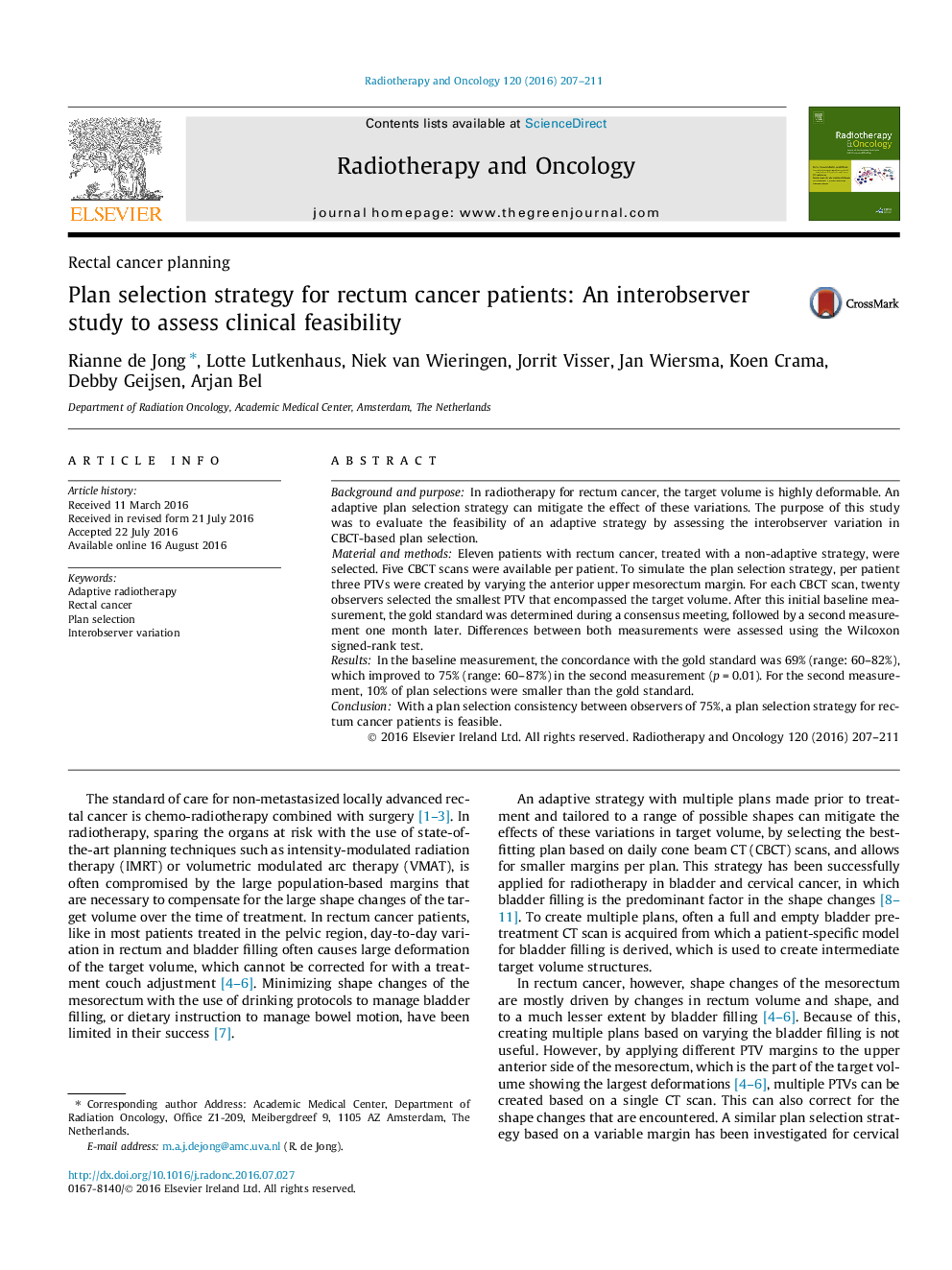| Article ID | Journal | Published Year | Pages | File Type |
|---|---|---|---|---|
| 5530017 | Radiotherapy and Oncology | 2016 | 5 Pages |
Background and purposeIn radiotherapy for rectum cancer, the target volume is highly deformable. An adaptive plan selection strategy can mitigate the effect of these variations. The purpose of this study was to evaluate the feasibility of an adaptive strategy by assessing the interobserver variation in CBCT-based plan selection.Material and methodsEleven patients with rectum cancer, treated with a non-adaptive strategy, were selected. Five CBCT scans were available per patient. To simulate the plan selection strategy, per patient three PTVs were created by varying the anterior upper mesorectum margin. For each CBCT scan, twenty observers selected the smallest PTV that encompassed the target volume. After this initial baseline measurement, the gold standard was determined during a consensus meeting, followed by a second measurement one month later. Differences between both measurements were assessed using the Wilcoxon signed-rank test.ResultsIn the baseline measurement, the concordance with the gold standard was 69% (range: 60-82%), which improved to 75% (range: 60-87%) in the second measurement (p = 0.01). For the second measurement, 10% of plan selections were smaller than the gold standard.ConclusionWith a plan selection consistency between observers of 75%, a plan selection strategy for rectum cancer patients is feasible.
